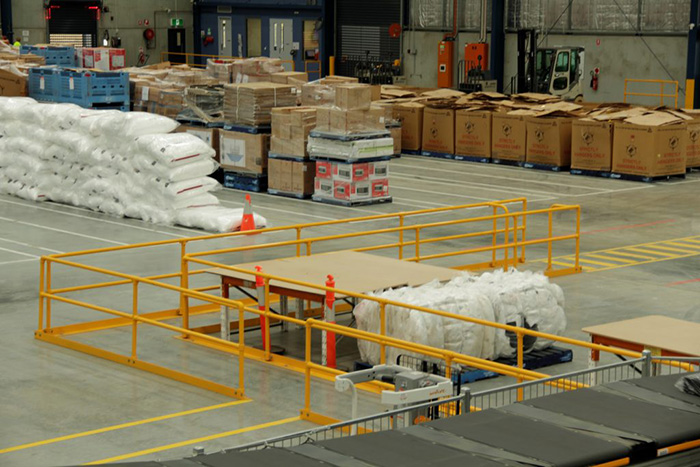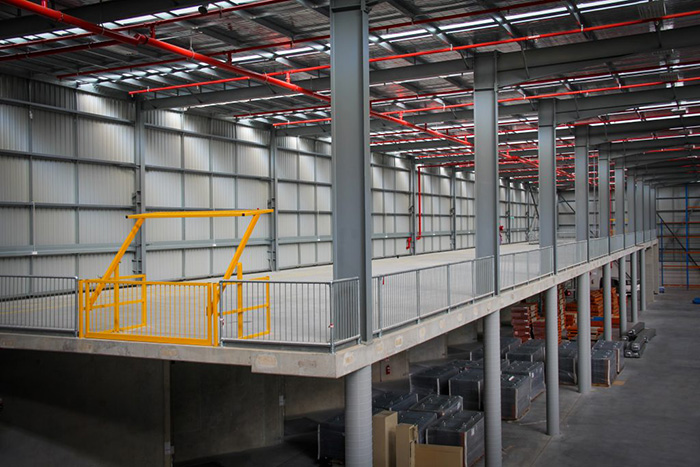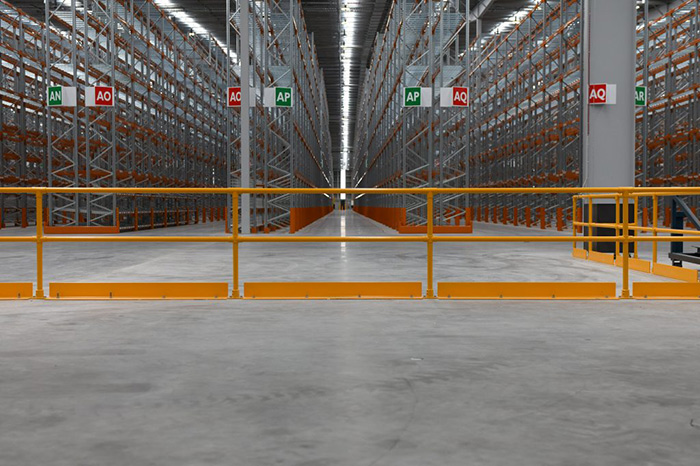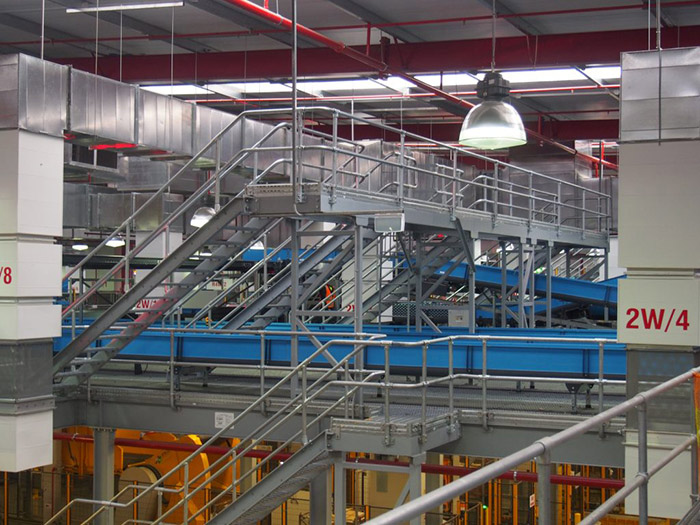Industrial warehouses and distribution centres are hives of activity. Forklifts zip by, workers stock shelves, and products move in and out at a rapid pace. But amid this bustling environment lies a constant threat – the potential for falls and injuries. This is where handrails, balustrades and safety barriers become crucial players in maintaining a safe and productive work environment.
Importance of safety in industrial warehouses
Industrial facilities operate under strict safety regulations, and for good reason. Working at heights remains one of the leading causes of serious injuries and fatalities in Australia. Recent research paints a stark picture: work-related injuries and illnesses cost the Australian economy a staggering $28.6 billion annually.
While implementing safe work practices is essential for preventing accidents, physical barriers such as compliant handrails and balustrades play a mandatory role in safeguarding employees, employers, and visitors. They prevent falls, improve balance, guide traffic flow, and provide visual cues. Standards such as AS 1657.2018 (Australia) and NZS 1657.1992 (New Zealand) set the guidelines for these crucial safety elements.

Specifying compliant handrails for industrial warehouses and distribution centres
When specifying handrails and balustrades, it’s important to consider all factors, including material, height, and grip strength, to ensure they suit the specific needs of your warehouse environment and adhere to the right compliance standards. For example, areas such as mezzanines, stairs, service platforms, pedestrian walkways, and loading docks all have unique safety requirements.

Moddex, a leader in modular handrail and balustrade systems, offers a wide range of products designed to meet and exceed these requirements:
- Assitrail disability handrails designed for safe success and mobility
- Tuffrail industrial handrails for heavy-duty environments
- Conectabal commercial balustrades for workplaces and public spaces
- Ezibilt pre-engineered kits for quick assembly
The benefits of installing compliant handrails
By prioritising the installation and maintenance of compliant handrails and balustrades, warehouse and distribution centre managers go beyond just ticking a regulatory box. They help create a safer working environment, reduce the risk of costly accidents, and ensure a healthier, more productive workforce. Handrails and balustrades are not just building features – they’re essential safety equipment.
Proven success with Moddex products
Moddex’s range of products has been installed in a variety of warehouses and distribution centres, ensuring compliance with building codes and resolving a wide array of safety requirements.
Here are some examples of industrial warehouse and distribution centres Moddex products have been successfully implemented:
- Oz Design Warehouse: Installation of compliant handrails to meet specific warehouse safety requirements.
- Kmart Distribution Centre: Tailored safety barriers designed to improve worker safety in high-traffic areas.
- Foodstuff North Island Distribution Centre: Industrial-grade safety solutions that meet the highest standards in food distribution.
- Australia Post Facility VIC: Custom handrails and balustrades ensuring worker safety during daily operations.
- Aldi Distribution Centre: High-compliance safety systems tailored to the retail giant’s busy distribution network.
- Westar Isuzu’s Truck Centre: Tuffrail systems installed to provide robust protection in a heavy-duty vehicle servicing environment.
Our modular handrail system streamlines the process, eliminating the need for engineering drawings and welding on-site, making installation quicker and more efficient.

Material options for Tuffrail industrial handrails
Moddex’s prefabricated range of handrails and barriers offers several benefits. Unlike traditional solutions, which require onsite welding and engineering drawings, Moddex’s systems are pre-engineered, minimising installation time and associated risks. This approach allows for faster project completion and ensures compliance with safety regulations right out of the box.
One standout example is the Tuffrail industrial handrail system, which offers three material types to cater to different environments, each made from durable, high-quality raw materials:
- Hot-dip galvanised steel: Highly durable and suited for heavy-duty industrial use.
- Marine-grade aluminium: Resistant to corrosion, perfect for coastal and high-moisture environments.
- 316 grade stainless steel: The only modular stainless steel handrail system designed specifically for industrial applications worldwide, offering maximum resistance to extreme weather and chemical exposure.

Ensuring safety and compliance in industrial facilities
Industrial facilities are subject to strict safety regulations and building codes. Designing structures that meet standards while maintaining a productive work environment requires careful attention to detail. Central to this is the role of handrails, balustrades, and safety barriers in protecting personnel from potential hazards such as falls, injuries, or machinery accidents.
Working at height is a high-risk activity and still one of the leading causes of death and serious injury in Australia. Recent research for Safe Work Australia reveals that Australia’s economy would be $28.6 billion larger annually, and 185,500 more jobs would be created, in the absence of work-related injuries and illnesses.
While implementing safe operational procedures is essential to mitigating workplace falls and other incidents, the use of compliant industrial handrails and balustrades on mezzanines, stairs, service platforms, walkways, and fall edges is mandatory. These safety measures provide compliant protection for employees, employers, and visitors under standards such as AS 1657.2018 and NZS 1657.1992.

